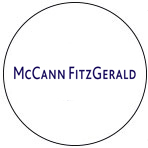
Within a generation, Ireland has experienced two extremes of economic fortune. ‘The Celtic Tiger’ (a term referring to unprecedented and uninterrupted growth from the mid-1990s to the mid-2000s) sickened before 2008, when Ireland faced a deep economic crisis after the property bubble – which the growth was predicated on – burst and consumer spending collapsed.
Ireland was the first eurozone country to enter recession as a result of the economic events of 2008 and, in many ways, is still defined by their consequences. Attempting to offset the damage, the Irish government has imposed austerity measures while taking steps to attract large amounts of foreign direct investment. The latter paid off with the appearance of technology giants Microsoft, Facebook and Twitter, who have a large-scale presence in Dublin.
Key sectors include pharmaceuticals, computer hardware and software, food, drink and defence, alongside burgeoning energy, property and financial services industries.
Increasing regulation and its challenges
Huge volumes of new regulation were introduced into the European Economic Area post-2008 and, as an EU state and member of the single currency, Ireland was also impacted. The new European directives are, in many cases, complex and difficult to navigate. Patrick Wilkinson, GC of Northern Trust, points out that with respect to one project his team is ‘expecting level 2 implementing legislation to be issued possibly only two to three weeks before the legislation is due to take effect.’
Other legislation coming into force is aimed at increasing the efficiency of Irish businesses. General counsel of financial services company FEXCO, Eleanor Daly, highlights implementing changes introduced by the Companies Act 2014 as one of her team’s main tasks for the upcoming months.
Alongside regulatory pressures, Irish companies have found themselves making tough decisions in order to steer their businesses through these turbulent economic times. In many cases there is a distinction between work pre- and post-crash, and with an economy at the epicentre of the fallout, Irish companies and their lawyers have had to be both aware of, and adept at, negotiating a changing framework. Patrick Wilkinson explains that his clients are ‘under increased regulatory scrutiny, so they themselves started to increase the oversight and diligence they use to examine their relationships and the way they engage with us’. Relationships are also changing for Eleanor Daly; since 2008 it has been apparent to her that Irish banks have become ‘significantly more risk averse’.
This climate of fear has mixed consequences. Wilkinson says that the crash has made everyone ‘less complacent’ and has caused companies to ‘focus more on good business disciplines’, indicating that while confidence may be low, increased regulation and oversight should ensure that past mistakes aren’t repeated.
Causes for optimism
Jeff Rich, legal director for Twitter’s EMEA operation, highlights the many advantages that have led companies like Twitter to base operations in Ireland. Rich cites ‘an educated, English-speaking workforce which is similar culturally to the US in terms of doing business’ that is not only good for existing companies, but for ‘start-ups getting going in Europe too.’ Adrian Kelly, GC and co-founder of renewable energy company airsynergy, feels that Irish-based companies starting out now have a better chance of securing national and European grant aid than in 2008. Kelly also notes a government push to encourage people to set up local enterprises, while Patrick Wilkinson highlights good relationships with local authorities and the ability to enjoy links to employers in other sectors as defining features of the Irish market.
Outlook
There is a sense of cautious optimism in the aforementioned sectors, and even within those that have struggled more (namely property and retail), outside investors are still ‘looking at Ireland as a good bet’ says Wilkinson. Jeff Rich observes that ‘companies keep coming to Ireland as they feel it is a good, fair and transparent place to do business’; the perception and reality of which are both crucial to recovery. As long as these positive components of the market don’t change and the government continues to work closely with and facilitate trade, Ireland should emerge from the post-crisis environment in a stronger position than it’s had in many years.
